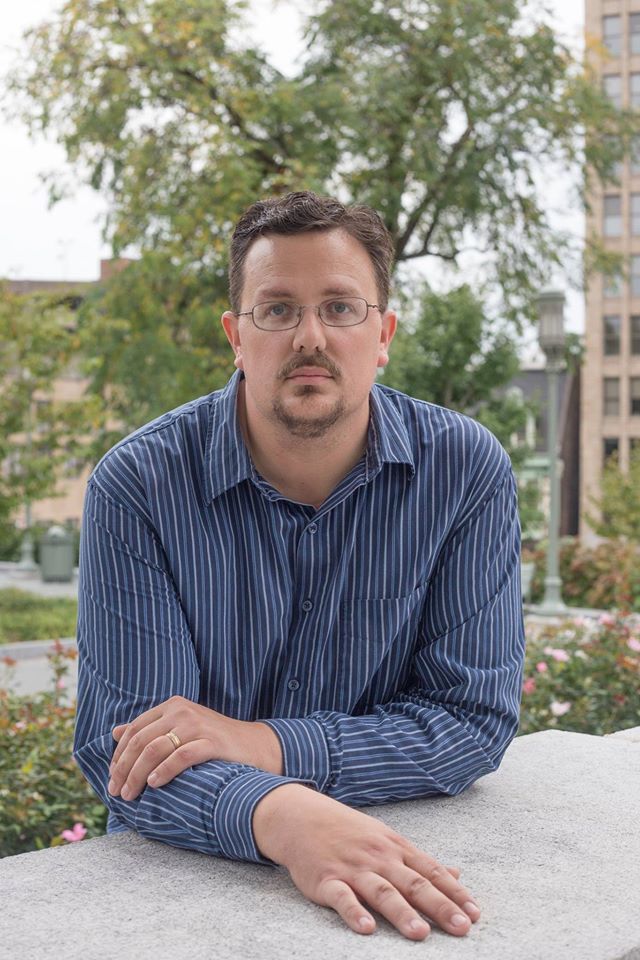Posttraumatic Stress Disorder (PTSD) vs. Posttraumatic Growth (PTG): Focusing on Symptoms vs. Resiliency in Survivors of Trauma
I’m no expert. I may be a counselor-in-training, completing my master’s degree in Clinical Mental Health Counseling at CACREP-accredited Messiah College Graduate School, but I’m not the authority on Posttraumatic Stress Disorder (PTSD) or Posttraumatic Growth (PTG). Here’s what I do know: I know what it’s like to experience significant trauma. In fact, I was sexually molested at the age of four by a male perpetrator and spent years reeling from the after-effects of Childhood Sexual Abuse (CSA).
It’s entirely possible I grew up with PTSD symptoms and remained undiagnosed. Regardless, I’m still here today, and somehow, I’m thriving. I found my way through the trauma, the pain, and the unwanted flashes of memory of my abuse. With little help and the furthest-from-ideal home life situations, I found a way to bounce back, grow, and find resiliency. You can, too.
As a graduate student I’m learning plenty of new things. I never knew there was such a thing as PTG, but there is. We’ve all heard about PTSD, since many of our family members have at least someone in the military, or who have experienced trauma from the events of 9/11, or who have lived through one of several hurricanes, or other weather-related natural disasters.
But here’s the problem with PTSD: it focuses solely on the symptoms of the trauma, the after-effects, and these can start to define the survivor. The goal of a diagnosis is to identify a mental health need, to develop a treatment plan and therapeutic goals, and to work toward those goals. The ultimate goal is to be discharged from treatment because you have attained your goals or have made sufficient progress in healing from your trauma. When an individual is diagnosed with PTSD, it’s like a sentence for permanent victimhood. The diagnosis can define you, it can prevent you from moving on, and it can limit your ability to find a way out. Or at least, it has the potential for these negative outcomes if handled wrong.
I’ve never been diagnosed with PTSD, but I’ve experienced some of the after-effects. These may include: reliving or experiencing the trauma through flashbacks or nightmares. These experiences can be so vivid they include visuals, smells, and the sensation of touch. Those who experience these vivid reliving of past events might experience things that are not actually happening, and then startle awake from being in a hyper-alert or hyper-vigilant state of mind, and realize those events did not actually happen.
Imagine a line with a focal point in the center which stands for the trauma you’ve experienced. If you were to move to the left, let’s say this can be described as a negative outcome. If you were to move toward the right, let’s say that is a positive outcome. Moving left of the trauma brings you to Posttraumatic Stress Symptoms (PTSS). These symptoms have distress as a key component. Moving further along this continuum away from the trauma, brings you to PTSD. But, these negative outcomes do not have to be the only way out from the trauma. Moving to the right, away from the trauma, you come to PTG. Posttraumatic Growth is an amazing paradox. The individual with PTG has both distress, just like PTSS on the opposing side, but as a result of a cognitive change, literally a transformation, after processing the after-effects of the trauma, which leads the individual toward PTG. The components of PTG include: new possibilities, relating to others, personal strength, appreciation for life, and spiritual change. Along the positive side of the continuum, PTG is only the first step leading to Resiliency. Resiliency is where true growth happens, with long-term positive effects, and no longer has distress or reliving the trauma as an outcome.
The point of this article is to inform you, and to let you know that these acronyms exist and what they mean. You have options, and not all of them are negative ones. We live in a negative-focused, glass-half-empty, bad news is good news culture. Rarely do we hear about the possibility of good, growth, resiliency as outcomes to problems, let alone trauma. Now you know. Tell a friend. And when you’re tempted to make a joke of the very real trauma someone has experienced, first walk a mile in their shoes, then see if they’re doing the best they can with the resources they have, and swallow that thought if it doesn’t encourage that person toward a positive outcome.
Who knows? Maybe you’ll be the next one to experience an unexpected trauma in your life, and you’ll be glad to know there are options that don’t involve remaining a victim, or a public punching bag, or a bully’s favorite sport. Will you accept a PTSD or PTSS diagnosis? Or, will you seek out the possibility of PTG or resiliency as an outcome for you?
* * *
 G. Donald Cribbs has written and published poetry and short stories since high school. Donald is a graduate of Messiah College in English and Education, and is currently a graduate student in Clinical Mental Health Counseling. He and his wife and four boys reside in central Pennsylvania where the author is hard at work on his next book, the sequel to his debut novel, THE PACKING HOUSE (2015), by Booktrope. Having lived and traveled abroad in England, France, Belgium, Germany, China and Thailand (you can guess where he lived and where he visited), the author loves languages and how they connect us all. Coffee and Nutella are a close second.
G. Donald Cribbs has written and published poetry and short stories since high school. Donald is a graduate of Messiah College in English and Education, and is currently a graduate student in Clinical Mental Health Counseling. He and his wife and four boys reside in central Pennsylvania where the author is hard at work on his next book, the sequel to his debut novel, THE PACKING HOUSE (2015), by Booktrope. Having lived and traveled abroad in England, France, Belgium, Germany, China and Thailand (you can guess where he lived and where he visited), the author loves languages and how they connect us all. Coffee and Nutella are a close second.
Donald can be found on his blog, Facebook and Twitter
If you enjoyed this post, please take a few moments to leave a comment or to share with your friends using the little share buttons below.








Leave A Comment